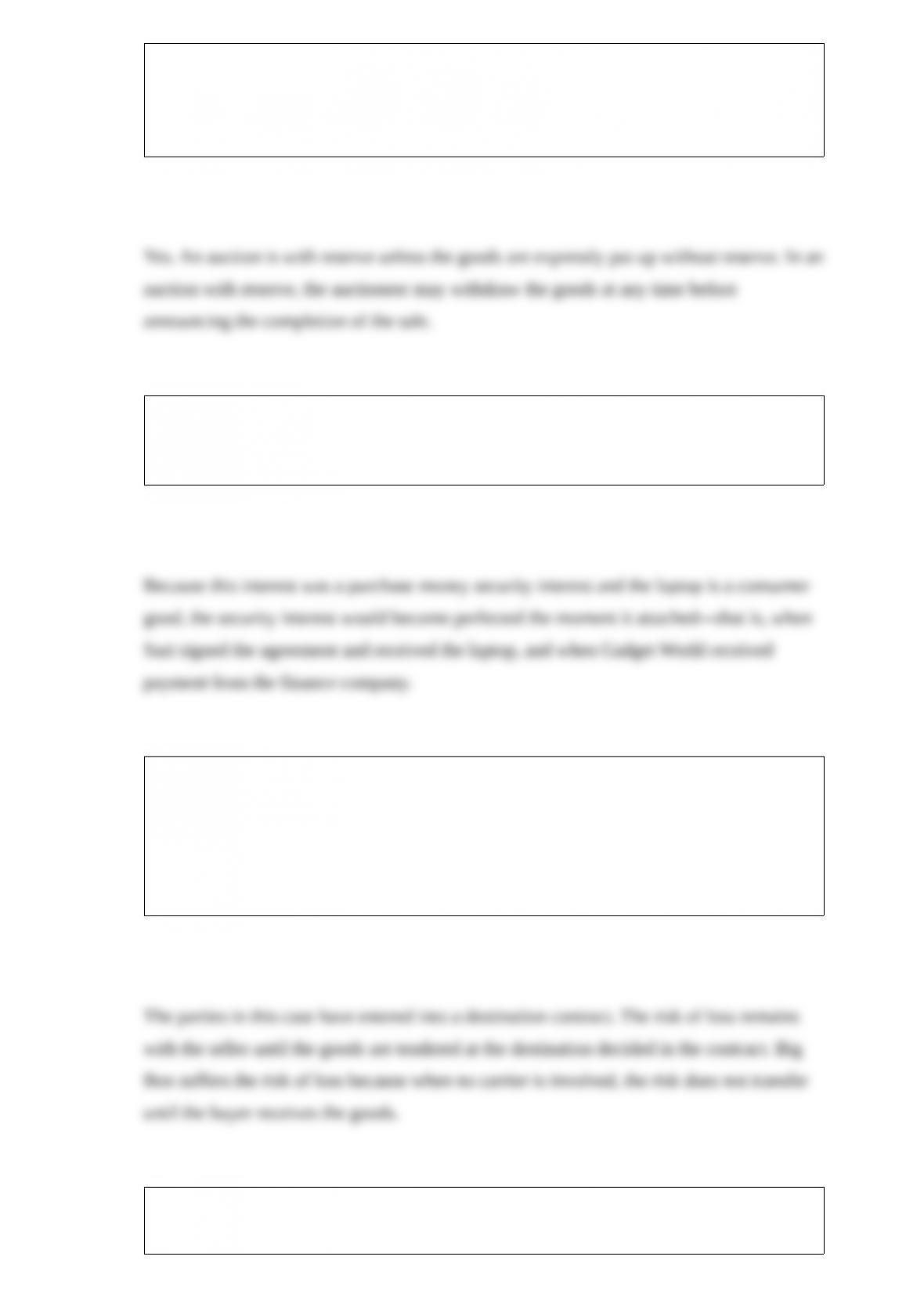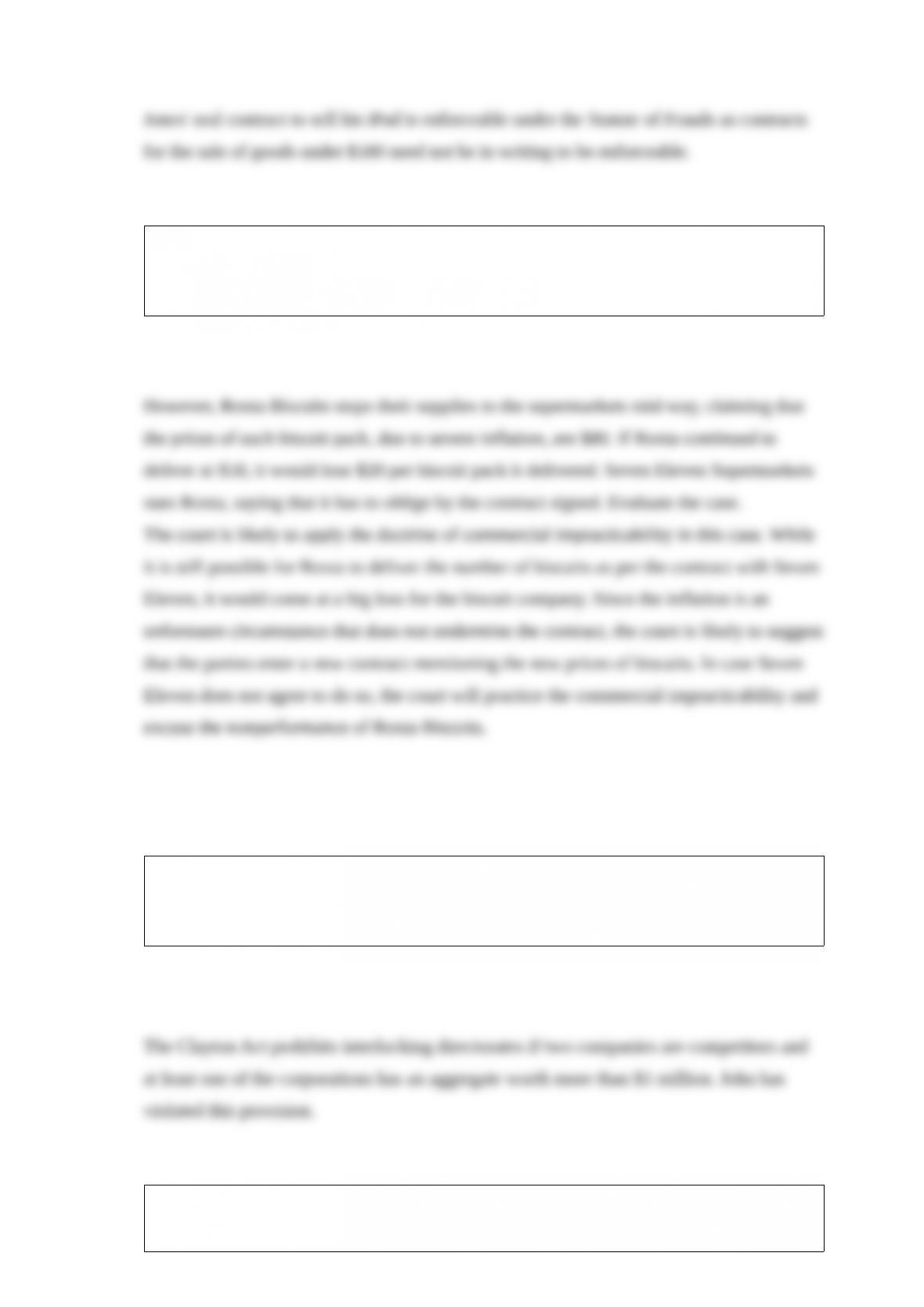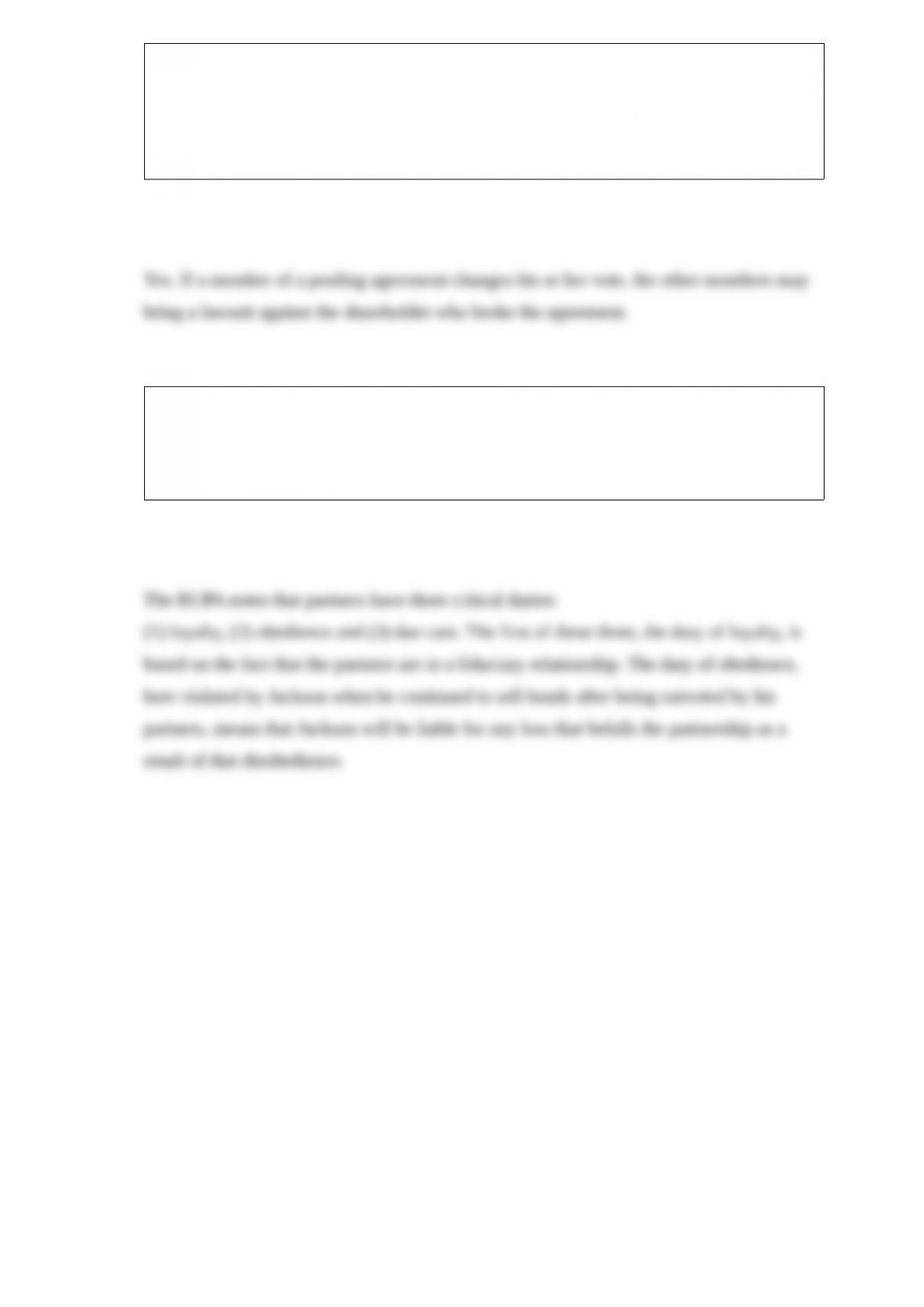Marlene, one of the defrauded cardholders, wants to sue the credit card company but
should attempt to:
A. approach the legislature for special suit legislation.
B. approach the U.S. Supreme Court to grant original jurisdiction.
C. bring a petition to the Congress signed by the cardholders.
D. bring a class action suit.
If an insured purchases a guaranteed insurability provision on a life insurance policy,
the:
A. insured is allowed to pay an extra initial premium in exchange for an assured option
to buy more insurance at certain specified times later with no questions asked.
B. insurer is allowed to excuse the insured from paying premiums if the insured
becomes disabled.
C. insured has to pay an extra $25 in exchange for a guarantee of coverage by the
insurance, should the insured become disabled.
D. insurer has to pay double the amount of the policy to the beneficiary if the insured
dies from accidental causes.
Cristina receives a new credit card from Seventh National Bank that does not provide a
means for a retailer to verify that the holder of the card is in fact authorized to use it.
The next day, Cristina discovers that she has lost her card. As soon as she discovers the
card is missing, she calls Seventh National to report the loss. Already, $620 worth of
unauthorized charges have been made on her credit card. Under the Truth-in-Lending
Act Cristina will:
A. have to pay for the entire $620 of unauthorized charges.
B. have to pay for $50 of the unauthorized charges.
C. not have to pay any amount of the unauthorized charges.
D. have to pay for 50% of the unauthorized charges.



























































